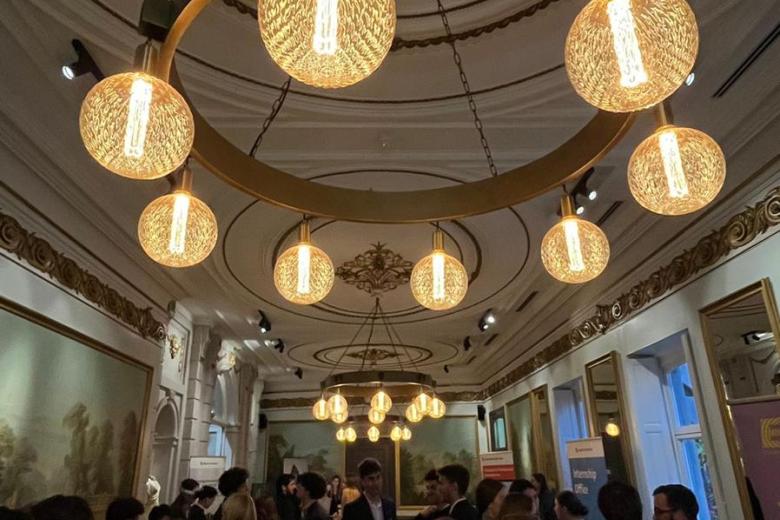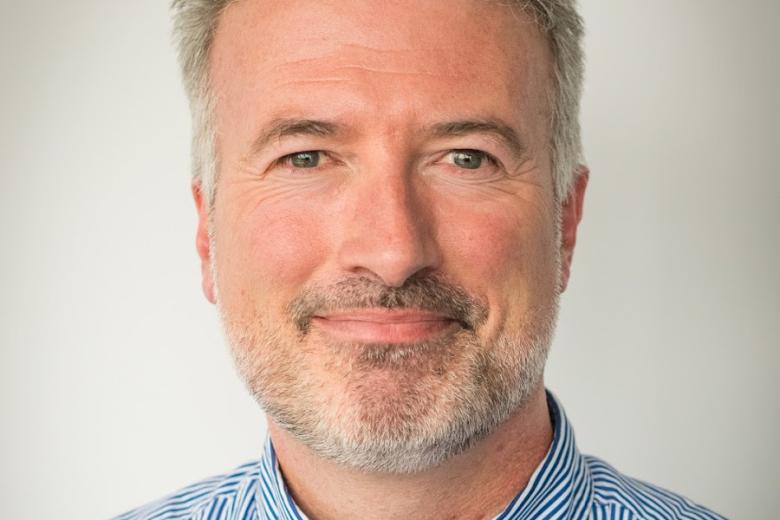A healthy business mentality and work that matters
A strong-willed globetrotter with an unwavering belief in the power of cooperation, and the ability to see opportunities where others see obstacles. That’s Patricia Vermeulen in a nutshell. The director of Amref Flying Doctors in Leiden, Vermeulen was educated at Maastricht University using Problem-Based Learning. “That’s still the way I like to work.”
Maastricht was not an obvious choice for her. She intended to study cultural anthropology in Leiden, or business administration or political science in Groningen. But she ended up enrolling in a new programme, International Business, in far-flung Limburg. “I thought, ‘You can do a lot with a business degree. With international students and professors, and a six-month internship abroad – even better!’ Then I went to visit Maastricht and was immediately sold on the university, the city, the way of life, the beautiful old buildings, the almost mystical atmosphere.”
Vermeulen’s high school teachers wondered why on earth she would opt for business administration, after having taken five different languages and few social science subjects. “That’s a theme in my life, people saying, ‘Do you really think that’s a good idea?’ I do take the warnings seriously, but they also act as an added incentive. Once I make my decision, I have full confidence in it. It’s served me well so far.”
Problem-based approach
Problem-Based Learning in particular appealed to Vermeulen. “It’s still the way I like to work: tackling a case in a small group, looking at it from all angles, deciding what to do. You can apply it to all kinds of situations.” The model fosters engagement, she says, and works better than imposing decisions on others. Vermeulen uses it up to the highest level of management.
Providing aid
A lucrative career in the business sector was beckoning, but a marketing internship during her studies changed her mind. The internship was at Unilever in Colombia, where the civil war, poverty and violence changed her perspective. “I realised I wanted to do something that matters.” After her studies, she ended up at the postal service TNT, working in various departments and ultimately going into HR. When the company entered into a partnership with the World Food Programme, Vermeulen seized the opportunity. In Malawi, she again came face to face with the facts of life: poverty and food scarcity due to persistent drought had led to famine, in a population already decimated by the HIV/AIDS epidemic.
Vermeulen hit the reset button, quit her job and went to work for the Red Cross, where she could really make a difference. With her business background and management experience, she rose rapidly through the ranks of the international department of the Netherlands Red Cross, which at the time was primarily managed by ‘fieldworkers’. They excelled at field operations, but as Vermeulen says, “many of them couldn’t read a balance sheet and had never managed a team. So I was a good addition.”
Golden combination
Her business background and international aid work turned out to be “a golden combination”. NGOs benefit from a driven and professional manager who can balance the books and find the right partners. Since late 2015, when she became director of Amref Flying Doctors, the organisation’s budget has increased by a third. Vermeulen sees entrepreneurial ventures as an additional way to achieve their primary goal: improved access to healthcare for vulnerable populations in Africa. “Also, we in the Netherlands have become very good at raising funds through private donations. We’re currently exporting that expertise to other Amref offices in Europe and North America.”
These days she no longer needs to go looking for potential partners; they approach Amref. “We have a very strong African organisation that sets out lines of communication, which is unique. Our headquarters in Kenya has 1500 employees all over the continent. Only two of them are not from Africa. In other words, we know our way around; we know the local context, have an extensive network, excellent contacts with governments and a very solid reputation. Partners know this. Partners like Philips and Dunea, a large water firm that has acquired funds to establish a local water company within ten years. We’re helping them ensure people will also start paying for clean drinking water.”
Alumni as partners
Amref now also works with SHE Collaborates, which is headed by another UM graduate, Geraldine Beaujean [see pp. 27–29 of this issue]. The collaboration came about through the Amref International University in Kenya, which was looking for a partner for pedagogical support. In turn, SHE Collaborates was able to use the Amref team in South Sudan for an educational project. “Our presence in such a fragile country is exceptional, as we don’t provide emergency aid. But we managed to secure the funding, and together we’re stronger. Relationships are important for every form of cooperation. That Geraldine also studied at UM gives it an extra dimension. Sharing memories of our time as students in Maastricht makes it a lot more personal.”
Also read
-
Maastricht Business Days 2024: Building bridges between talent and opportunity.
The Maastricht Business Days (MBD) have been a hallmark of the School of Business and Economics (SBE) since their inception in 1996, standing out as the most prestigious student recruitment event. Organized by SCOPE, the faculty’s dynamic study association, the MBDs connect over 600 students...

-
Empowering Smallholder Farmers in the Data Economy: Unlocking Opportunities and Overcoming Obstacles
Frederik Claasen, the head of policy at our partner organisation Solidaridad Network on the opportunities and obstacles facing smallholder farmers in their data ecosystems.

-
Soft landing in Vienna
After several rocky years, Maastricht University alum Lea Vink has found her feet in Vienna. Professionally, she is taking new steps at the crossroads of aviation and organisational psychology. And on a personal level, luck has smiled on her since her transition from man to woman.

